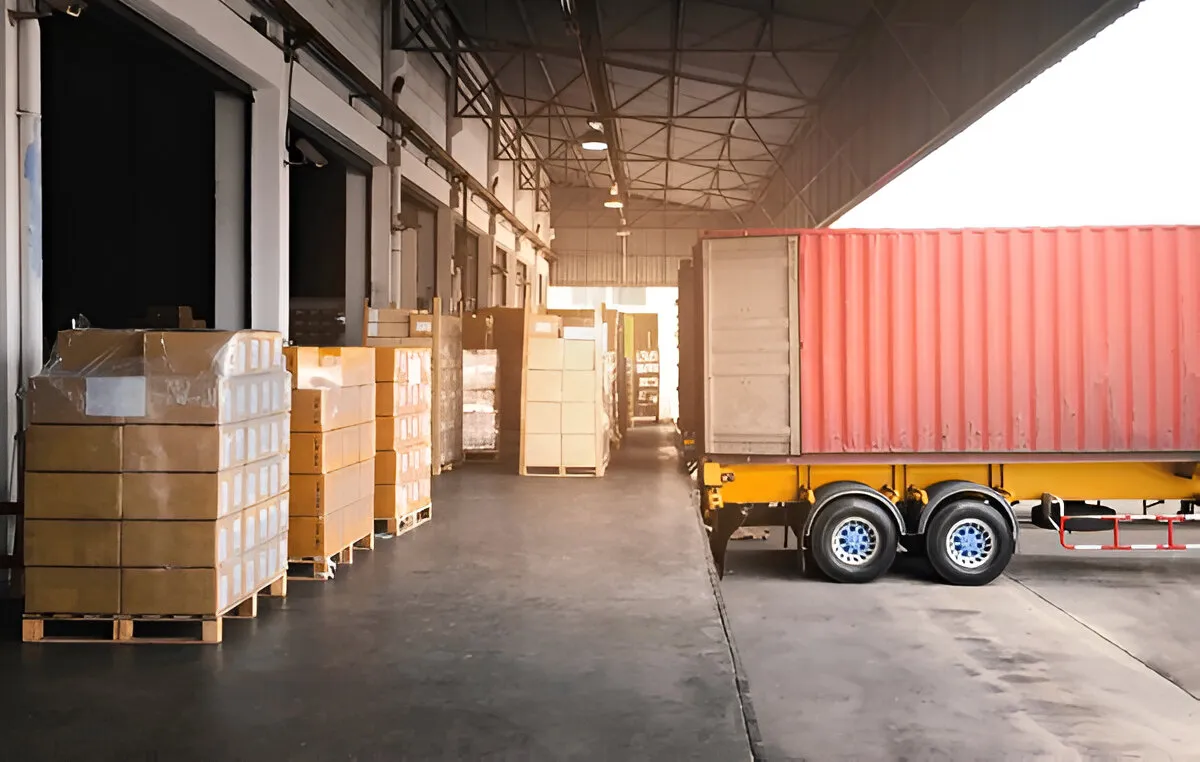- Introduction to Commercial Warehousing
- Key Advantages of Warehousing Solutions
- Improving Supply Chain Management
- Technological Integration in Warehousing
- Opportunities for Enhanced Customer Experience
- Choosing the Right Warehousing Partner
- Environmental Considerations in Warehousing
- Future Trends in Warehousing
Introduction to Commercial Warehousing
In the current fast-paced business landscape, organizations face constant demands to enhance their supply chain efficiency and effectively oversee their inventory management. Businesses often juggle logistics complexities, which can detract from focusing on core operations. This is where warehousing becomes an invaluable asset. Commercial warehousing provides adaptable storage solutions that enable businesses to optimize their operations, lower expenses, and improve efficiency. This flexibility is essential for organizations seeking to succeed in the current market environment and effectively address changing demands.
Key Advantages of Warehousing Solutions
- Cost-Efficiency: The financial benefits of outsourcing storage needs to a professional warehousing service are profound. In-house storage facilities incur significant expenses, including real estate costs, staffing, maintenance, and technology upgrades. By partnering with a commercial warehouse, businesses can eliminate these overheads. Warehouses often operate on shared spaces and resources, which helps distribute costs effectively. This leads to substantial financial savings that companies can reinvest into growth strategies, research, and development.
- Scalability: Scalability is one of the hallmarks of effective warehousing solutions. The dynamic nature of business requires storage solutions that can adapt to changes swiftly. Whether a company experiences a seasonal spike in demand or is preparing for expansion, commercial warehouses offer the flexibility to scale storage capabilities. This adaptability ensures that businesses consistently meet customer needs without facing the pitfalls of understock or overstock. Warehousing solutions allow companies to manage inventory efficiently, catering to short-term fluctuations and long-term growth.
- Security: Security considerations are paramount when it comes to storage facilities. Reliable warehousing solutions are fortified with advanced security measures, including surveillance cameras, security personnel, and inventory management systems. These measures protect valuable inventory from theft, damage, and loss. Knowing that their goods are stored securely provides businesses with peace of mind. This security allows them to focus on enhancing their product offerings and improving customer service without worrying about potential losses.
Improving Supply Chain Management
Effective Warehousing is a cornerstone of efficient supply chain management. Companies can swiftly address customer demands by enhancing the efficiency of goods movement. Warehousing is crucial in maintaining a balanced inventory, enabling companies to operate with precision. This balance prevents overstocking or stockouts, which can disrupt operations and damage customer relationships.
Technological Integration in Warehousing
Incorporating technology in warehousing has revolutionized logistical operations, significantly enhancing their efficiency. Cutting-edge advancements, including automation, robotics, and data analytics, have brought unprecedented precision and effectiveness in inventory management. Automated systems handle various tasks, from stocking to order fulfillment, reducing the potential for human error. Meanwhile, data analytics allows warehouses to anticipate demand trends and optimize inventory levels, ensuring that businesses are always ready to meet customer demands swiftly. This technological evolution is paramount in maintaining a competitive edge globally.
Opportunities for Enhanced Customer Experience
One significant benefit of utilizing commercial warehousing is improving customer satisfaction. Adequate warehousing guarantees that products are accessible and can be dispatched quickly, fulfilling customer expectations. Fast and reliable delivery is crucial in maintaining customer loyalty and trust. Businesses can improve their reputation and foster strong customer relationships by reducing delivery times and ensuring product availability. This capability to delight customers consistently is a significant competitive advantage.
Choosing the Right Warehousing Partner
Selecting the appropriate warehousing partner is a critical decision that affects the entire supply chain. Factors such as the partner’s reputation, technological capabilities, security measures, and scalability options should be assessed meticulously. An experienced warehousing partner can provide strategic insights and customized solutions aligning with a business’s needs. Collaborating with the right partner enables enterprises to streamline logistics, reduce costs, and focus on innovation and customer satisfaction, positioning them for sustainable growth.
Environmental Considerations in Warehousing
Modern warehouses adopt eco-friendly practices as environmental sustainability becomes a priority across industries. From utilizing solar energy and reducing waste to implementing energy-efficient systems, warehouses minimize their carbon footprint. Such practices have positive environmental impacts and enhance the business’s image as a responsible entity. Adopting sustainable practices in Warehousing reflects a firm commitment to sustainability and can appeal to environmentally conscious consumers and partners.
Future Trends in Warehousing
The warehousing industry continuously evolves, driven by technological advancements and shifting consumer expectations. The rise of e-commerce and the demand for quick delivery times have necessitated more responsive logistics solutions. Innovations such as artificial intelligence, machine learning, and blockchain are expected to revolutionize warehouse operations by improving their intuitiveness and connectivity. Organizations that actively adopt these advancements can formulate logistics strategies that are not only efficient but also progressive, enabling them to tackle future challenges and capitalize on opportunities effectively.

